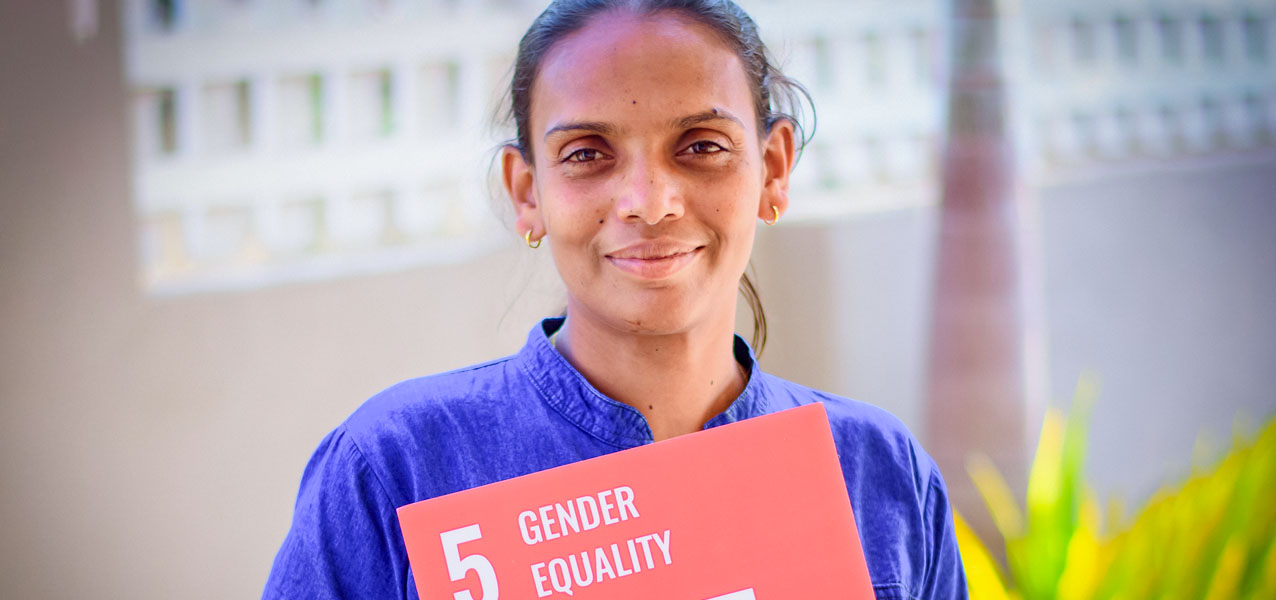In the words of Dilushani Fernando: “There is no limit to what we, as women, can accomplish.”
Date:


A few years ago, two children in my village in Puttalam, Sri Lanka, lost their lives to dengue. Improper waste disposal is one of the main reasons for the spread of the virus. In my daily life, I have seen people throwing away their waste onto the road. This has increased mosquito breeding sites.
When I saw this happening, I did not want to be a silent spectator. I wanted to make a difference in my community. This is when I joined the village dengue prevention committee. We worked hard to raise awareness among the public and helped remove mosquito breeding sites. I am proud to say that our hard work paid off and we managed to eradicate dengue in the area.
"When our oceans are filled with plastic waste, our communities struggle because they rely on the ocean for food and income."
Apart from the health impacts, improper waste disposal affects livelihoods of those living in coastal areas. When our oceans are filled with plastic waste, our communities struggle because they rely on the ocean for food and income.
The recently held multi-stakeholder dialogues conducted by UN Women and Chrysalis gave us a space to speak about these issues. Through this, I learnt a lot on waste segregation and the economic benefits of upcycling while reducing waste. Now, I always think twice before throwing away something. I use it to create something new instead. This is what I hope to teach young children in my community. When I show them these creations, they are also inspired to create their own, which in turn creates the habit of upcycling. When these values are instilled in children from a younger age, this teaches them the importance of minimizing our impact on the environment. This is how I make a difference in my community.
What I would like to tell young women and girls is that, if you want to stand up for a cause, do it. Being a woman does not have to stop you from taking the lead. I used to be very timid as a child. Later in life, I realised that I did not have to be completely dependent on my husband. He supports my decisions and the work I do. At the end of the day, whether you are a man or a woman, our skills and talents remain the same. We should not let gender roles restrict us from taking leadership roles, even when it comes to addressing issues like waste management. I always stand up and speak up for what is right. Even if I am the only one standing, I do the best I can for my community.
There will always be people who try to talk you out of voicing your opinion. If there is one thing I have learned, we should not let that discourage us, because as women, we can achieve anything we set our minds to.”
Dilushani Fernando is a social worker and community leader in the Puttalam District in Sri Lanka’s North-Western Province. She advocates for women’s leadership and works on issues related to waste management and dengue prevention.
The article is prepared within the project titled ‘Promoting Women’s Engagement in Effective Solid Waste Management’ convened by UN Women together with local CSO Chrysalis and UNOPS in Sri Lanka, with support from the UN Peacebuilding Fund. The project aims to bring communities together to provide solutions for a shared environmental issue and empower women by supporting their engagement in governance mechanisms.